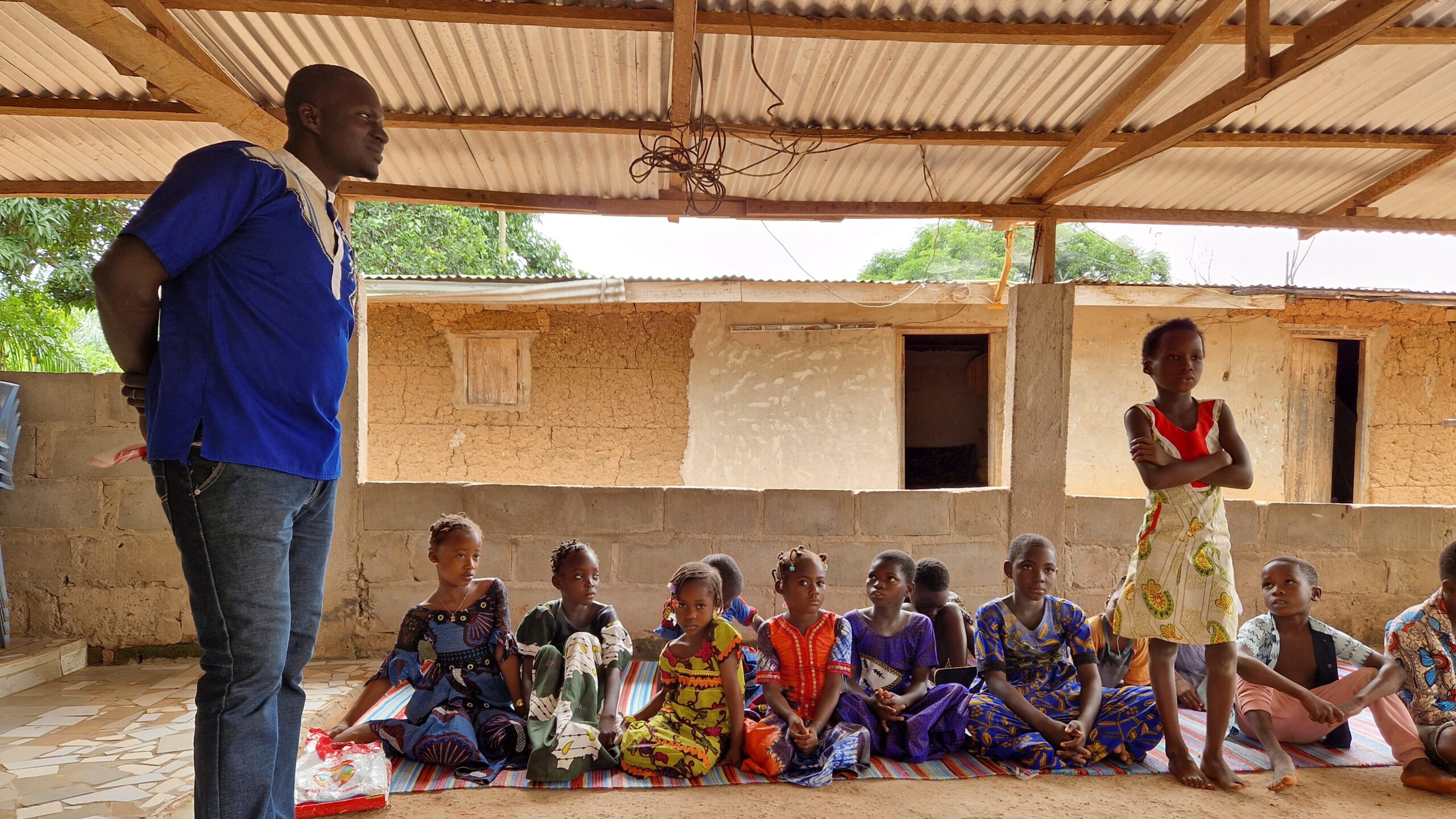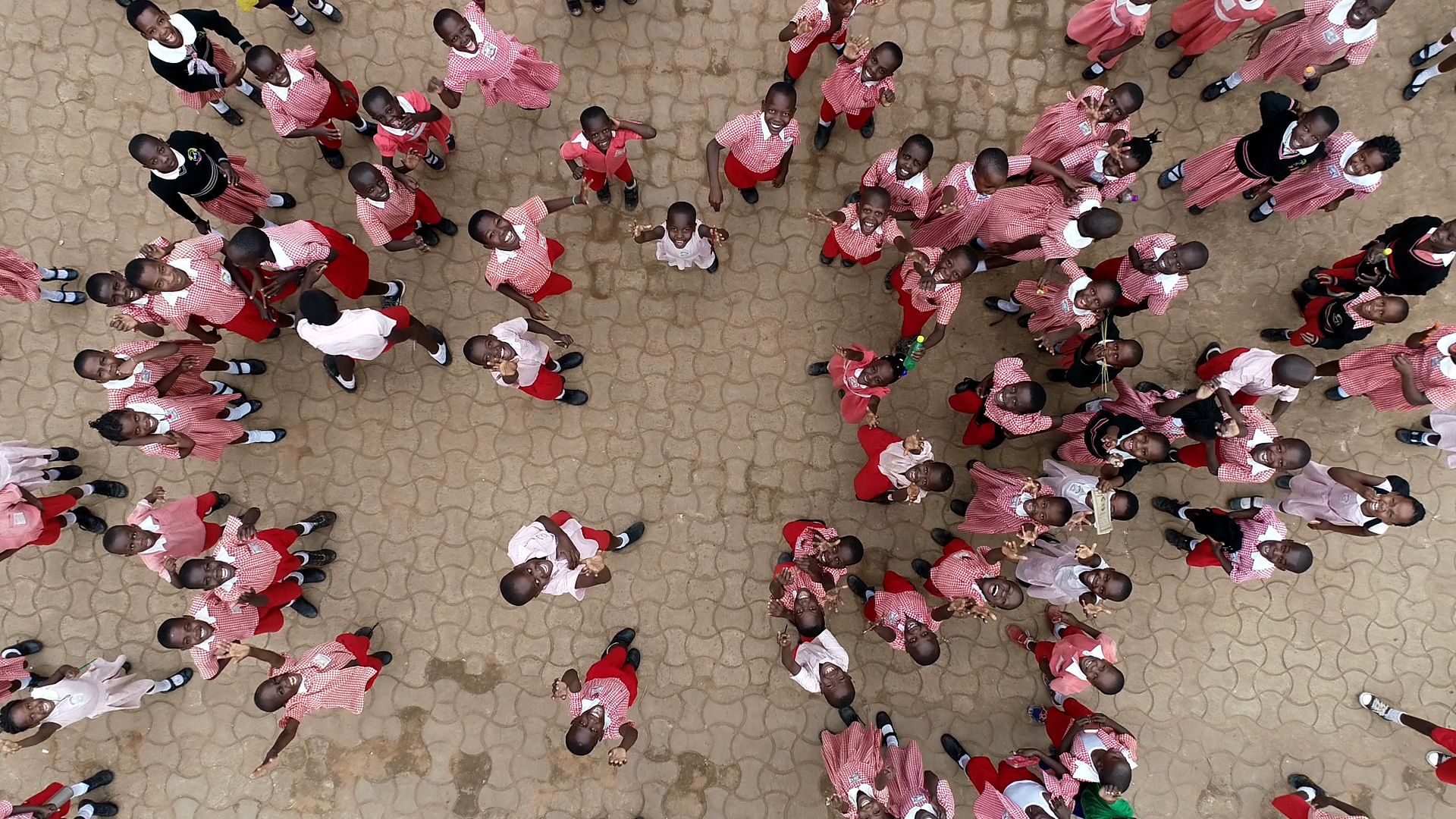Teacher training
The national teacher union SYNADEEPCI has a long history of supporting education sector reforms. Within the implementation of the WNCB programme, SYNADEEPCI has played an important role by providing training to teachers on how to prevent children from dropping out and to identify and act against cases of child labour. By receiving training, teachers are increasingly embracing their role in raising awareness among parents and communities.
More comprehensive training is given to focal point teachers, who will take the lead in their schools and communities. The focal point teachers play a key role in integrating action against child labour into the community, such as by developing anti-child labour clubs with their pupils that host awareness activities on the importance of education and dangers of child labour. These activities may include dances, plays, drawing or writing contests. As a result of their efforts, they have been able to prevent several cases of child labour, but also early marriages and other abuses that would have affected students in the area.


Teachers say that the training gave them the knowledge and skills to guide the children. They feel more confident. Otété Kaouka Affoué, head teacher in Kpada says: “We have learned the difference between child labour and socialising work. I am now better trained to talk to the planters. I know how to approach them, how to explain them about child labour and the importance of education. In rural areas, teachers are mostly respected by parents. Many parents lack awareness, so when we talk to them, they reflect on their actions.”
Raising awareness helps to prevent early marriages and pregnancies. Sandrine Affoué, a teacher at the Oupoyo school: “A 13-year-old pupil in CM2 (last year of primary school) was about to be married. I talked to her mother about my own situation, making her realise that if her daughter did not get married so young, she could become a teacher, for example. The mother understood. The girl is still studying, she is now in the secondary school, and she comes to visit me regularly.”
SYNADEEPCI involves local leaders, like village chiefs and religious leaders, in the awareness raising activities. At public meetings, such as parents’ meetings, teachers have the support of the local leaders. School dropout may still occur, but teachers continue to work with local authorities to find appropriate solutions and prevent child labour.
Since 2020, the union has trained 303 teachers to prevent, identify and act against child labour.
Okabo, where Samuel (10) comes from, is almost entirely dependent on cocoa production. In the small village, near Buyo, most of the villagers are involved in growing and harvesting cocoa. Before the bridge school in Okabo opened, Samuel used to work on his parents’ cocoa plantation. His parents didn’t have anywhere to leave him while they worked on their cocoa plot, so they took Samuel along. In the heat and sun, he often carried the harvest for kilometres or spent the day weeding the plantation with a sharp machete.
Schools in the area are far away. Many children need to walk up to 10 kilometres through the forest. Even where there are schools, Samuel says, there is no food available at lunchtime, so students walk home to eat. After lunch, not everyone makes the long journey back. As a result, children lag behind in their studies. They need to catch up on lessons, and they miss classes where they learn to read and write. Many children end up quitting school due to frustration, the challenges of getting there, or the need to help their parents on the plantations.
Samuel is now attending on the bridge classes established. In his bridge class, Samuel receives lessons to catch up to the education level for his age. Now he hopes to attend high school in Gagnoa, just like his older brother.

